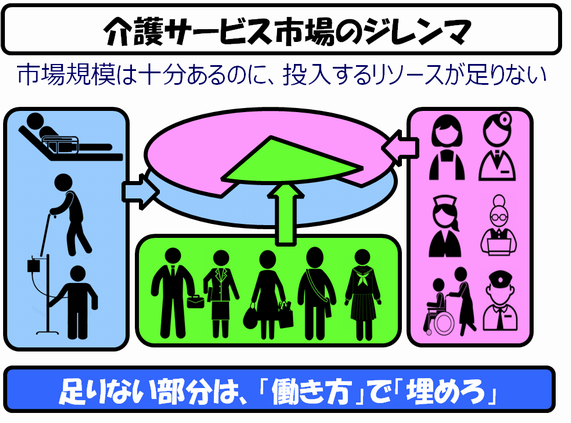アニメ「キングダム」をアマプラで流しながら、論文の修正作業をやっています。
I am revising a paper while streaming the anime “Kingdom” on Amazon Prime.
大河ドラマや、戦争(古代から近代に至るまで)のアニメやマンガでは、よく、
In historical dramas, as well as war-related anime and manga (from ancient to modern times), it is common to hear lines like the following:
先陣の誉れ、だの、
“The honor of leading the charge,” and the like,
死して名を残せ、だの、
“Die and leave your name behind,” and the like,
名を後世に残せ、だの、
“Leave your name for posterity,” and the like,
末代まで語り継がれよ、だの、
“Be spoken of for generations,” and the like,
歴史に名を刻め、だの、
“Engrave your name in history,” and the like,
というセリフが登場します。
Such lines frequently appear.
が、私たち、その歴史について、「ほとんど」ではなく、「全く」知りません ―― 後世に全く伝わっていません。
But as for us, that history not “almost,” but “entirely” we do not know it; it has not been transmitted to later generations at all.
ただ、そういうセリフは、多分、存在したと思うのです。
Still, I believe that such lines probably did exist.
それは
They may have been intended
戦意高揚のためであったり、
to raise morale,
統率維持のためであったり、
to maintain cohesion,
指揮命令の貫徹のためであったり
or to ensure the execution of commands
することを目的とした、一時的な興奮状態の創出(あるいは限定的な洗脳状態)であるかもしれません。
to create a temporary state of excitement (or a limited form of indoctrination).
もっとドライに言えば、
Put more bluntly,
恐怖の抑制のためであったり、
to suppress fear,
逃走・離脱を防ぐためであったり、
to prevent escape or withdrawal,
個人判断を停止させるためであったり、
to stop individual decision-making,
自己保存本能を一時的に無効化するためであったり、
to temporarily turn off self-preservation instincts,
思考を単純化するためであったり、
to simplify thinking,
とも言えるかもしれません。
That may also be an accurate description.
とは言え、そのような「名誉の死」というものが、実際に名誉として取り扱われたことは、あったと考えています。
That said, I do believe there were times when such a “honorable death” was in fact treated as honorable.
私が気になっているのは、「その『名誉の死』なるものの有効期間はどれくらいか?」ということです。
What concerns me is this question: “How long is the effective lifespan of this so-called ‘honorable death’?”
-----
これについて、感情論や価値判断を一度外し、数字で考えてみました。
So I tried to think about it numerically, setting aside emotional arguments and value judgments.
感情論を離れ、客観的に整理してみます。
Let us step away from emotion and organize this objectively.
(1) 戦場における行動を駆動するための心理的装置としての「名誉の死」の場合
(1) “Honorable death” as a psychological device to drive behavior on the battlefield
恐怖を抑え、退却を防ぎ、判断を単純化し、集団を前に進める。その効果は強力ですが、持続時間は短いです。
It suppresses fear, prevents retreat, simplifies judgment, and pushes the group forward. Its effect is powerful, but short-lived.
多くの場合、それは一つの戦闘、あるいはその場面が終わるまでのものに過ぎません。
In most cases, it lasts no longer than a single battle or even just a particular scene.
結論:有効期間 数時間から1日
Conclusion: The Effective period is several hours to one day
(2) 社会的な評価としての「名誉の死」の場合
(2) “Honorable death” as a form of social evaluation
遺族や同世代が存命である間は、その死は個別具体的な意味を持ち、一定の称揚が続きます。
While surviving family members and contemporaries remain alive, the death retains a concrete meaning and continues to be honored.
しかし、世代交代が進むにつれ、記憶は抽象化され、名前と出来事だけが残り、やがてそれも失われていきます。
However, as generations pass, memories become abstract, leaving only names and events, which eventually fade away as well.
自然に放置された場合、「名誉」が社会的に通用する期間は、長くありません。
If left to fade naturally, the period during which “honor” socially functions is not long.
結論:有効期間 約20~30年(1世代)
Conclusion: Effective period approximately 20-30 years (one generation)
(3) 歴史的に長く語り継がれている「名誉の死」の場合
(3) “Honorable death” that is passed down over long historical periods
ただし、それらは例外です。
These, however, are exceptions.
教育、記念日、碑、物語、教科書といった制度によって、意図的に保存・管理された結果に過ぎません。
They are merely the result of deliberate preservation and management through systems such as education, anniversaries, monuments, narratives, and textbooks.
制度が維持されている間は記憶も維持されますが、その前提が失われれば、評価は簡単に書き換えられ、あるいは消失します。
While the system is maintained, memory is preserved; once that premise is lost, evaluations are easily rewritten. Or erased.
結論:有効期間 制度が維持される限り(自然減衰なし)
Conclusion: Effective period ? as long as the system is maintained (no natural decay)
以上を踏まえると、「名誉の死」は本質的に短期消耗型の概念であると言えます。
Based on the above, “honorable death” can be said to be inherently a short-consumption concept.
長期にわたって効力を持つ場合、それは死そのものの価値によるのではなく、それを使い続ける仕組みが存在しているからです。
When it remains effective over the long term, it is not because of the value of the death itself, but because a system continues to use it.
結局のところ、「名誉の死」の寿命を決めるのは、死に方ではありません。誰が、どの立場で、それを語り続けるのか、です。
Ultimately, what determines the lifespan of “honorable death” is not how one died, but who continues to speak of it, and from what position.
-----
つまり、有効期間は、死者の死の態様ではなく、「語る側」の都合によって決まります。
In other words, the effective period is determined not by the manner of death but by the convenience of those who speak about it.
で、大抵の場合、「語る側」というのは、権力装置(国家)であることがほとんどです。
And in most cases, those who speak are systems of power, namely, the state.
「歴史小説などもあるじゃないか」と言う人もいるかもしれませんが、基本的に、私たちの国家の歴史を管理するのは「歴史教育」です。そして、この「歴史教育」が国家に委ねられている以上、私たちの歴史認識は、国家権力の手の内にあります。
Some may argue that there are historical novels as well, but fundamentally, the entity that manages a nation’s history is “history education.” And as long as that education is entrusted to the state, our historical perception lies within state power.
ただし、これは、権力装置(国家)が「国民を扇動する装置」であるという理由だけではありません(いや、まあ、そういう面もありますけどね)。
That said, this is not solely because the state is an “apparatus for manipulating citizens” (well, it does have that aspect too).
100年単位の忘却防止装置(もっぱら国民の教育)を管理・運用できるものが、現実的には国家くらいしか存在しないからです。
It is because, realistically, only the state can manage and operate a century-scale device for preventing forgetting, namely, the education of citizens.
で、私たちは、「歴史認識」という国家間の認識のズレによって、これからも国家間の紛争を続けていく運命にあるわけです。
And thus, due to discrepancies in “historical recognition” between states, we are destined to continue international conflicts.
-----
このように考えていくと、上記の『(3) 歴史的に長く語り継がれている「名誉の死」』すらも、誰かの(国家の?)管理下にあると考えると、
Thinking this way, even the aforementioned “(3) honorable deaths passed down through history” are under someone’s (the state’s?) control, and so I (Ebata) think?
『客観的かつ普遍的な「名誉の死」なんてものは、存在しないんじゃないかなぁ』
“There may be no such thing as an objective and universal ‘honorable death.’”
と、私(江端)は思うんですよね、
That’s what I think.
―― もはや、賢者も歴史から学ぶことはできないんじゃないかなぁ
